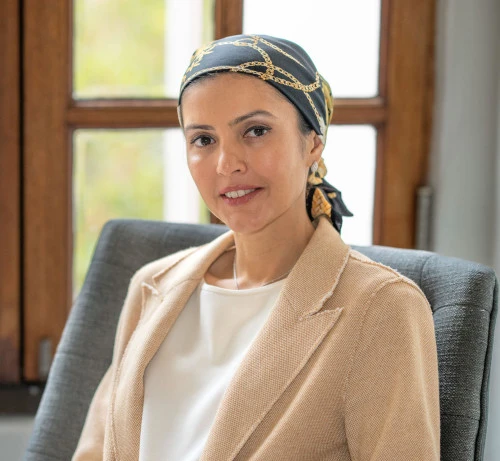
What to Expect in Your First Visit for an Endometriosis Evaluation
The Center for Endometriosis & Fertility in Newport Beach, California
It’s common for many of us to feel under-educated about our own reproductive health. Too often cultural taboos and simply embarrassment prevents us from asking important questions over the years. When it comes to reproductive and sexual health, it can be difficult to know what’s “normal” and what may be a concern. Even if you feel embarrassed about certain issues, I’ve seen and heard it all and am here to support and help you, not to pass judgment. Please simply click this HIPAA Secure Email Link to ask me a question via email, the communication is private and secure.


What to Expect in Your First Visit for an Endometriosis Evaluation
An evaluation for endometriosis can feel daunting, but understanding the process can help you feel more prepared and in control. Here’s a breakdown of what you might encounter during your first visit:
Detailed Discussion:
- Medical History: Be prepared to discuss your overall health, menstrual cycle history (including regularity, pain, and bleeding), pelvic pain (location, severity, and timing), fertility concerns, and family history of endometriosis or other gynecological conditions. Don’t hesitate to mention any seemingly unrelated symptoms that might be clues, like bowel or bladder issues during menstruation.
- Open Communication: This is your chance to voice your concerns and experiences openly. The doctor will likely ask questions to understand how these symptoms impact your daily life.
Physical Examination:
- Pelvic Exam: A pelvic exam allows the doctor to feel for abnormalities in your reproductive organs, like tenderness, cysts, or scar tissue that might indicate endometriosis. While not always definitive, it can provide valuable information.
Tests and Scans (not always done at the first visit):
- Pelvic Ultrasound: This painless imaging test uses sound waves to create a picture of your uterus, ovaries, and surrounding structures. It can help identify ovarian endometriomas (chocolate cysts) but may not detect all endometriosis lesions.
- Blood Tests: A blood test, like the CA-125 test, is not diagnostic for endometriosis but can be used to rule out other conditions and sometimes show markers suggestive of endometriosis.
Next Steps:
- Diagnosis: Based on your history, exam, and any tests, your doctor will discuss their diagnosis and next steps. Endometriosis can only be definitively diagnosed through laparoscopy, a minimally invasive surgical procedure. However, in some cases, a strong suspicion may be enough to start treatment.
- Treatment Plan: If endometriosis is suspected or diagnosed, your doctor will discuss treatment options tailored to your situation and goals. These might include pain management medications, hormonal birth control, or surgery to remove endometriosis lesions.
Remember:
- Be your own advocate: Don’t hesitate to ask questions and voice any concerns you may have.
- Take notes: Writing down key details from the discussion can help you remember them later.
- Support System: Consider bringing a trusted friend or family member for support during the appointment.
Dr. Sadikah Behbehani is in an OBGYN who specializes in Reproductive Endocrinology and Infertility as well as Minimally Invasive Gynecologic Surgery. She completed her 5 year OBGYN Residency at the well renowned McGill University in Montreal, Canada. She then completed a 2 year fellowship in Reproductive Endocrinology and Infertility (REI) at McGill University which makes her double board certified by the Royal College of Physicians & Surgeons of Canada in both OBGYN and REI. In addition, Dr. Behbehani completed a second fellowship in Minimally Invasive Gynecologic Surgery at the prestigious Mayo Clinic and can perform complex pelvic surgeries with both laparoscopy and robotics.
There are only a handful of physicians in the country with such training and being double fellowship trained in surgery and infertility allows Dr. Behbehani to treat complex gynecologic conditions affecting fertility such as endometriosis and fibroids.

Dr. Behbehani is very passionate about providing the best care to her patients, and she’s able to use her robotic skills and her fertility expertise to remove advanced endometriosis from the pelvis while still maintaining the integrity of the reproductive organs allowing them the best chances of pregnancy. With fibroid removal, Dr. Behbehani is able to skillfully remove large fibroids robotically, and expertly restore the anatomy of the uterus to reduce the chance of scar formation and improve pregnancy chances. Dr. Behbehani is also a mother herself, and feels passionate about helping patients start or grow their families. She is skilled in IVF and fertility treatment and has helped many patients become parents over the years.
As an Associate Professor at the University of California, Riverside School of Medicine, Dr. Behbehani is also heavily involved in medical research and publications. She’s presented at numerous national and international conferences, and her research is consistently quoted in women’s health. She’s a member of many international and national gynecologic societies including American Society of Reproductive Medicine (ASRM), American Association of Gynecological Laparoscopists (AAGL), and the Society of Gynecologic Surgeons (SGS). Click here for an overview of publications involving Dr. Sadikah Behbehani.
(949) 200-9038
1901 Newport Blvd, Suite 278 Costa Mesa, CA 92627

